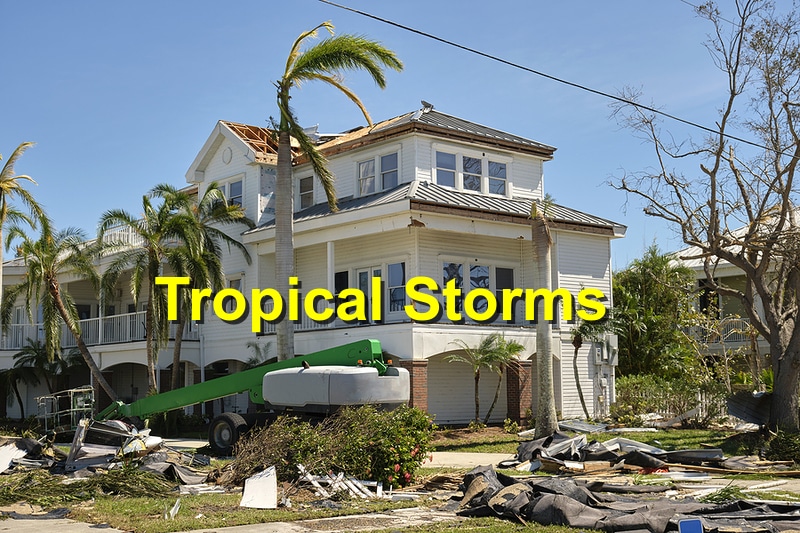Hurricanes and tropical storms are powerful storms that form over warm ocean waters and can cause significant damage and destruction when they make landfall. Hurricanes are usually classified by their wind speeds, with Category 1 being the weakest and Category 5 being the strongest. Tropical storms have wind speeds that are less than 74 mph.
As a homeowner, you should be aware that hurricanes and tropical storms can bring heavy rain, strong winds, and storm surges, which can cause flooding and damage to buildings and infrastructure. They can also cause power outages, road closures, and other disruptions to daily life. If you happen to live in a hurricane-prone area, it’s imperative to be prepared for a hurricane or tropical storm by having a plan in place, securing your property, having emergency supplies on hand, and staying informed about the latest developments and evacuation orders.
Besides, if a hurricane or tropical storm is forecasted to hit your area, it’s advisable to pay attention to the weather forecast and any alerts or warnings issued by local authorities and emergency management agencies. Follow their instructions and evacuate if advised to do so. That being said, Here are some steps you can take to protect your home from hurricanes and tropical storms:
- Have a plan: Before a storm hits, make sure you and your family have a plan in case of evacuation or emergency. Make sure everyone knows where to go and what to do in case of a hurricane or tropical storm.
- Secure your property: Make sure to secure loose items around your property, such as outdoor furniture, grills, and trash cans. These items can become dangerous projectiles during high winds.
- Protect windows and doors: Install storm shutters or plywood to protect your windows and doors. This can help to prevent damage from flying debris and high winds.
- Trim trees and bushes: Trim any overhanging branches or dead wood from trees and bushes around your property. This can help to prevent damage from fallen branches during high winds.
- Have emergency supplies: Make sure you have emergency supplies such as food, water, flashlights, and a battery-powered radio on hand in case of power outages.
- Have an emergency generator: if you live in an area prone to severe storms, it may be a good idea to invest in a generator that can power your home in case of an extended power outage.
- Flood Protection: If you live in a flood-prone area, consider investing in flood protection measures such as sandbags, sump pumps, and flood barriers.
- Stay informed: During a storm, stay informed by listening to local news and weather forecasts to stay up-to-date on the latest developments and any evacuation orders.
Bear in mind that the above steps are not a guarantee of protection, and your safety is always a priority. It’s strongly recommended that you follow the instructions of your local authorities and emergency management agencies.
References: MoneyGeek, Taraenergy




